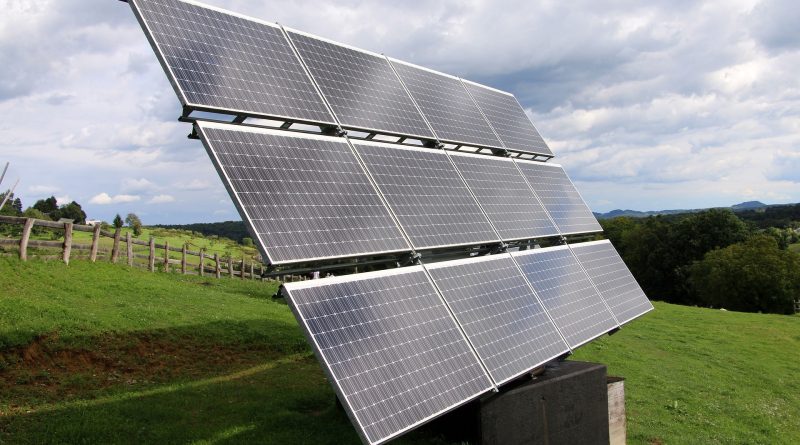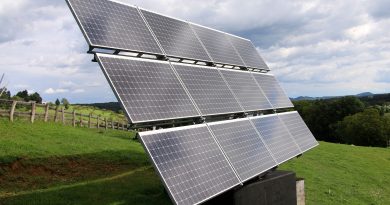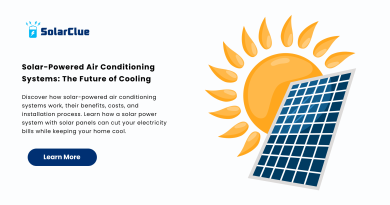Efficient Solar Power: Using Panels Without a Battery
Solar energy is becoming an increasingly popular alternative to traditional energy sources. With the advancements in technology, solar panels have become more efficient and cost-effective. However, one question that often arises is whether it is possible to use solar panels without a battery. In this blog, we will explore this topic and examine the advantages and disadvantages of using solar panels without a battery.
Table of Contents
Understanding Solar Panels
Before diving into the topic, it is important to have a basic understanding of how solar panels work. Solar panels are composed of photovoltaic (PV) cells that convert sunlight into electricity. These panels generate DC (direct current) electricity, which is then converted into AC (alternating current) using an inverter, making it compatible with the electrical appliances in our homes.
What is the Purpose of a Battery in a Solar System?
Batteries are an essential component of a solar system as they store excess electricity generated by solar panels. During peak sunlight hours, when the panels produce more electricity than the household consumes, the surplus energy is stored in the battery. This stored energy can then be utilized during periods of low sunlight, such as at night or on cloudy days.
Solar Panels without Batteries
It is indeed possible to use solar panels without a battery. In this setup, the solar panels are directly connected to the grid or the electrical system of the house. The electricity generated by the panels is first used to power the appliances and devices in the home. Any excess electricity is automatically sent back to the grid, allowing other consumers to benefit from it.
Advantages of Solar Panels without Batteries
Using solar panels without batteries offers several advantages. Firstly, it eliminates the need for expensive battery systems, reducing the overall cost of implementing solar power. Batteries require regular maintenance and eventually need to be replaced, incurring additional expenses. By eliminating batteries, one can significantly reduce the upfront and maintenance costs associated with solar systems.
Secondly, grid-tied solar systems without batteries can provide a constant and reliable source of electricity. Even during periods of low sunlight, the grid can compensate for the deficit, ensuring a continuous power supply. This is particularly beneficial for those living in areas with limited sunlight or frequent cloudy days.
Furthermore, grid-tied systems allow homeowners to take advantage of net metering. Net metering is a billing arrangement where homeowners are credited for the excess electricity they generate and feed back into the grid. This can potentially result in significant savings on electricity bills, as the surplus energy can offset the consumption during times when the solar panels are not producing enough.
Disadvantages of Solar Panels without Batteries
While the benefits of using solar panels without batteries are evident, there are a few disadvantages to consider. One of the main drawbacks is the dependency on the grid for electricity. During power outages, grid-tied systems without batteries will not be operational, as they do not have a backup power supply. This can be a concern for individuals residing in areas with unreliable or frequent power cuts.
Furthermore, without batteries, excess energy cannot be stored for personal use. Homeowners relying solely on grid-tied systems may not be able to fully harness the potential of their solar panels. This can be particularly inconvenient during times of high energy consumption, such as in extreme weather conditions or when using multiple appliances simultaneously.
Conclusion
Unlock the efficiency of solar power without a battery with SolarClue®. Our systems harness sunlight directly, providing instant electricity or feeding excess power back into the grid. Ideal for applications with consistent sunlight, these setups offer cost advantages and seamless integration. While perfect for grid-tied solutions, they can also be tailored for off-grid setups with backup power. Benefit from efficient solar solutions without the need for energy storage. SolarClue® ensures personalized recommendations, aligning your energy needs with daylight availability. Embrace a sustainable future, reduce costs, and contribute to a greener world. Contact SolarClue® today for a consultation and step into a more efficient solar era.
Frequently Asked Questions
Yes, solar panels can directly generate electricity without a battery, supplying power as long as sunlight is available.
Solar panels convert sunlight into electricity, and without a battery, the power is used instantly or fed into the grid if the system is grid-tied.
No, without a battery, solar panels cannot store excess energy for use during the night or low sunlight periods.
Systems without batteries are suitable for applications with consistent sunlight, like grid-tied systems, where excess power can be sent to the grid.
While less common, they can be used in off-grid setups if power consumption aligns with sunlight availability, and backup power sources are available.
Yes, systems without batteries generally have lower upfront costs, making them more budget-friendly for some users.
Systems without batteries are efficient in converting sunlight to electricity but lack the ability to store excess energy for later use.
Yes, grid-tied systems without batteries can feed excess power back into the grid, potentially earning credits or compensation.
Consider the reliability of sunlight, energy needs aligning with daylight hours, and the availability of grid-tie options.
Contact SolarClue® for a consultation. Our experts assess your energy needs, recommend suitable systems without batteries, and guide you toward efficient solar power solutions.



